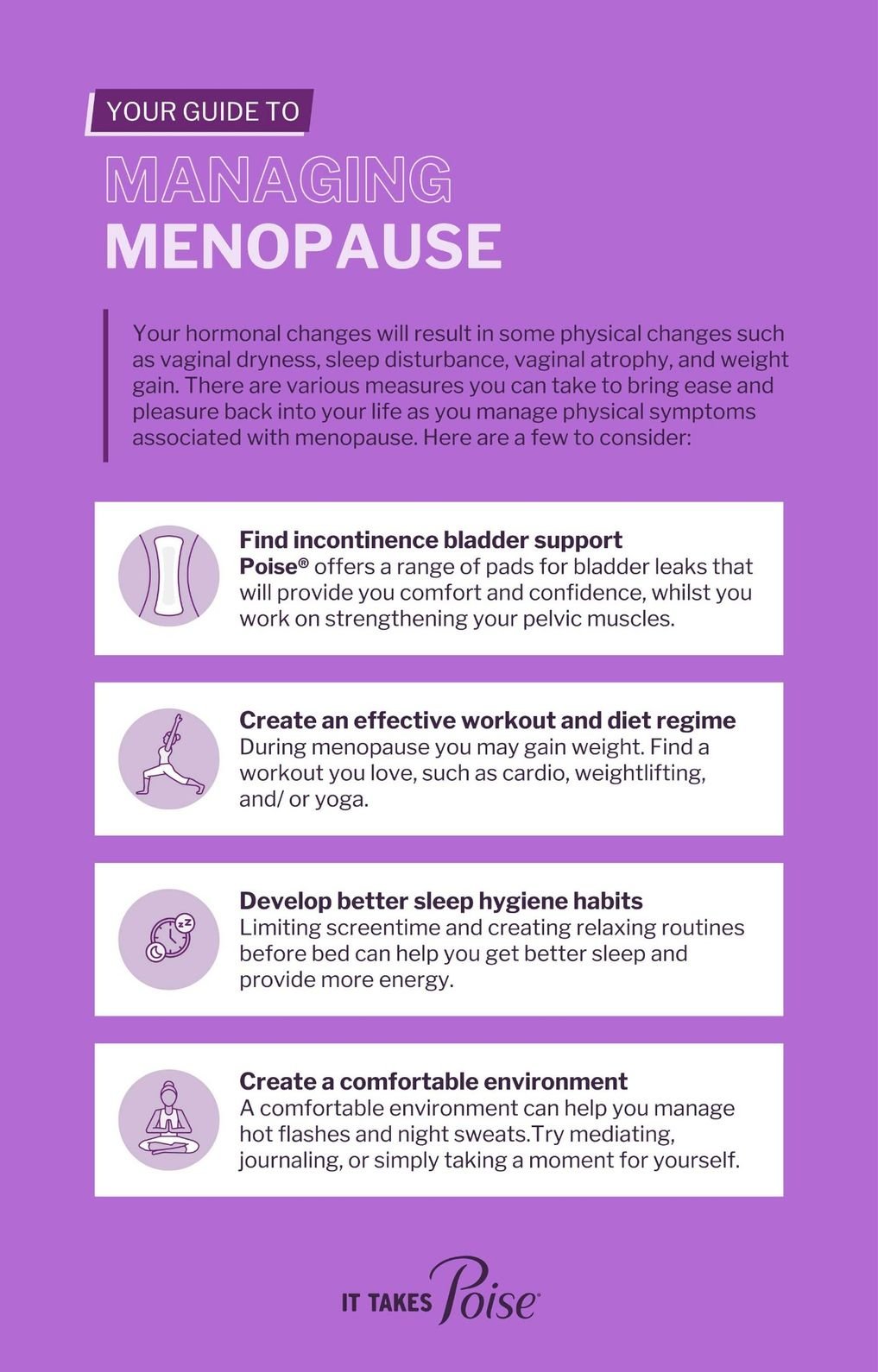Understanding your Sexual Well-being During Menopause
Defined as the period 12 months after your last mensural cycle, menopause will bring on many mental and physical changes. These changes can have a cascading effect on every part of your life, including your intimate relationships and sex life.
Because of hormonal changes, you might find yourself experiencing a decrease in sex drive and desire to be intimate with your partner and although this time can be stressful all hope is not lost. Below, we will outline some sexual well-being tips and tricks to help with menopause and sex.
Understanding the Impact of Menopause During Sex
Thanks to the change in your hormone levels, with estrogen decreasing and your progesterone levels being imbalanced, you might find yourself less interested in sex.
This isn’t the case for everyone where some women find that the hormone shift causes an increase in sexual appetite as the decrease in estrogen makes the effects of testosterone more evident.
However, about 50% of women continue to have sex during their 50s, studies do find that by their 70s there is a 27% decline in the amount of sexually active postmenopausal women.
Signs or Symptoms of Menopause
During menopause, the main driver for your change is the hormone estrogen. Before this change takes place, your ovaries begin producing less sex hormones during the perimenopausal stage (before menopause). These hormonal imbalances will result in external and internal symptoms such as:
- Hot flashes
- Depression and anxiety
- Muscle weakness leading to urinary incontinence
- Vaginal dryness and vaginal atrophy
- Sleep disturbances
- Shifting of moods
- Bladder leakage
The impact of your menopausal hormonal change cannot be understated as every change mentioned above can impact your sex drive. Even though this time can be difficult, your hormone levels do eventually even out, and your body adjusts to its new normal.
Physical Changes During Menopause

Your hormonal changes will result in some physical changes as well. These changes such as vaginal dryness, sleep disturbance, vaginal atrophy, and weight gain will all play a role in your confidence and comfort in the bedroom, affecting your desire to have sex during menopause.
These symptoms might cause you and your partner mental and emotional distress, further decreasing the desire to have sex and resulting in fewer sexual fantasies and thoughts.
There are various measures you can take to bring ease and pleasure back into your life as you manage physical symptoms associated with menopause.
- Find incontinence bladder support. The Poise® offers a range of pads for bladder leaks. Additionally, work on strengthening your pelvic muscles, which may weaken during menopause thanks to decreased estrogen levels.
- Create an effective workout and diet regime. During menopause you may gain weight, which can negatively impact your body confidence. This may contribute to a decreased desire to be intimate with your partner. Find a workout you love and be consistent such as cardio, weightlifting, and/ or yoga.
- Develop better sleep hygiene habits. Sleep plays a vital role in your overall well-being and energy levels. Chronically poor sleep will negatively impact your energy levels leading, which can lead to a decreased desire for sex. Limiting screen time and relaxing routines before bed can help you get better sleep and provide more energy.
- Create a comfortable environment. A calm and comfortable environment can help you manage hot flashes and night sweats. This can include mediating, journaling, or simply taking a walk to reconnect with yourself and your partner.
Find what works for you
This can be an exciting time for experimentation. If you find yourself struggling with a lowered sex drive or achieving orgasm, playing around with what works for you and your partner could bring you back to sexual equilibrium.
- Setting aside time for intimacy might feel scheduled and boring but creating a specific time for you and your loved one to be intimate in whatever way brings you both satisfaction could ease some strain around sexual distress.
- Using hormone therapy has been shown to help some women improve their libido with consistent treatment while also improving hot flashes.
- Focus on foreplay and sensuality as you might find that having more time before sex to become comfortable and improve communication with your partner will improve your libido.
- Ease your vaginal pain as your vaginal dryness and atrophy can make sex painful causing your disinterest in having sex. Use a vaginal lubricant to help ease any discomfort you may have as it works to make your sexual experience more pleasurable. Your doctor might prescribe you an estrogen treatment that can come in a cream or vaginal ring form. This estrogen cream can help increase vaginal moisture and eliminate discomfort.
How to Prepare for Menopause and Sex
You can enter this new season of your life with confidence and ease. With the steps mentioned you no longer must feel hindered by your menopause-induced low libido, use them to bring the spice back into your sex life.
Check-in with how you feel
Your mental and emotional state plays a huge role in your physical well-being and sexual desire. A 2021 review paper found that the difficulties in emotion regulation can contribute to poorer sexual performance and decreased satisfaction in the bedroom.
Because menopause has been shown to cause anxiety and depression, checking in with yourself about your emotional and mental state and/or seek professional help from a psychotherapist or sex therapist, if necessary. You should also speak to your partner, or a loved one to help you achieve greater satisfaction in your sex life.
Communicate with Your Partner
Going through the journey of menopause with your partner by your side can make the experience a lot easier. When your sexual arousal declines, they might be emotionally affected too, wondering what the cause is and if they share some responsibility.
Being open with your partner about your journey and struggles. This will not only help you to feel more supported, but it can also create a closer emotional bond in your relationship.
Tips for Maintaining Sexual Well-being During Menopause
By taking a holistic approach to your menopause journey you can feel supported and confident in your sexual health and well-being. Although menopause can be a challenging time it can also be an exciting one full of experimentation and new life experiences. You don’t have to let menopause hold you back.
This content should not substitute medical advice from your personal healthcare provider. Please consult your healthcare provider for diagnosis or treatment.
Recommended Products
Absorbency Level
Absorbency Level








